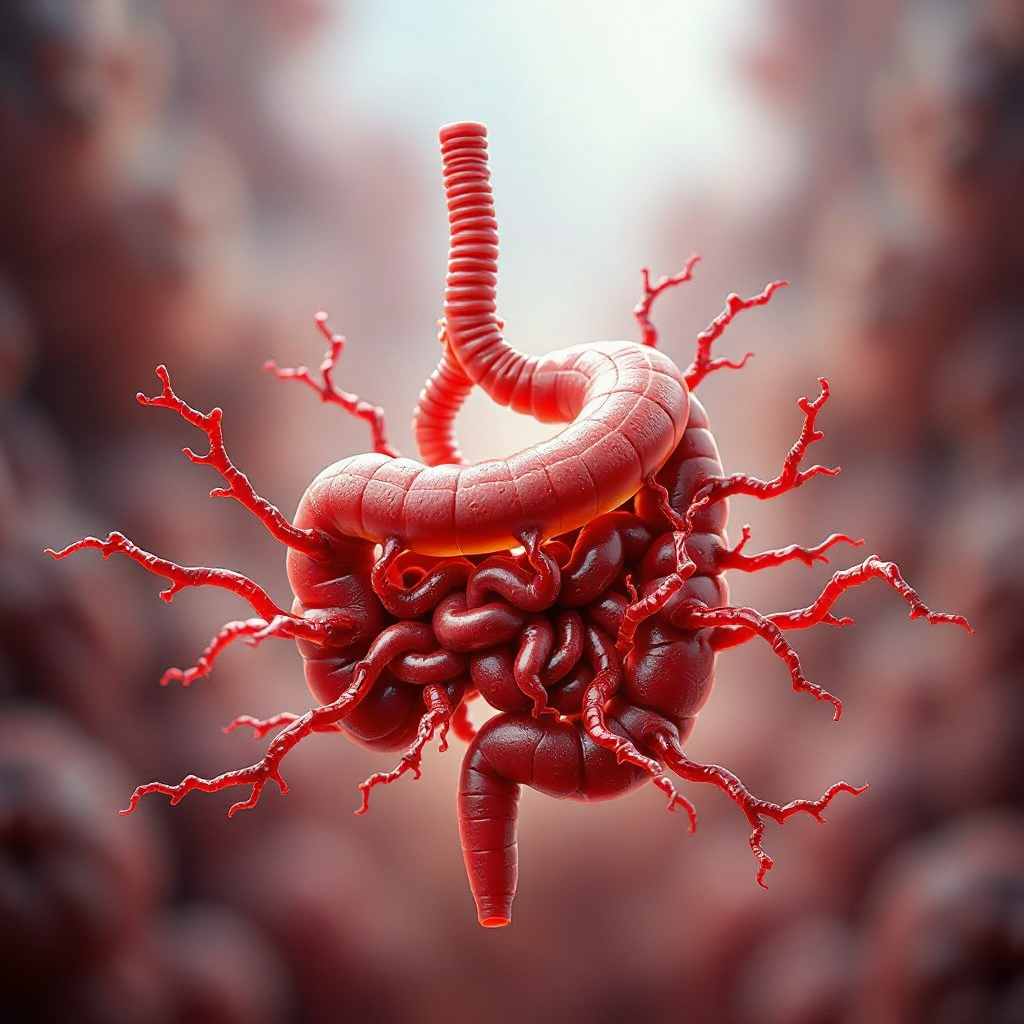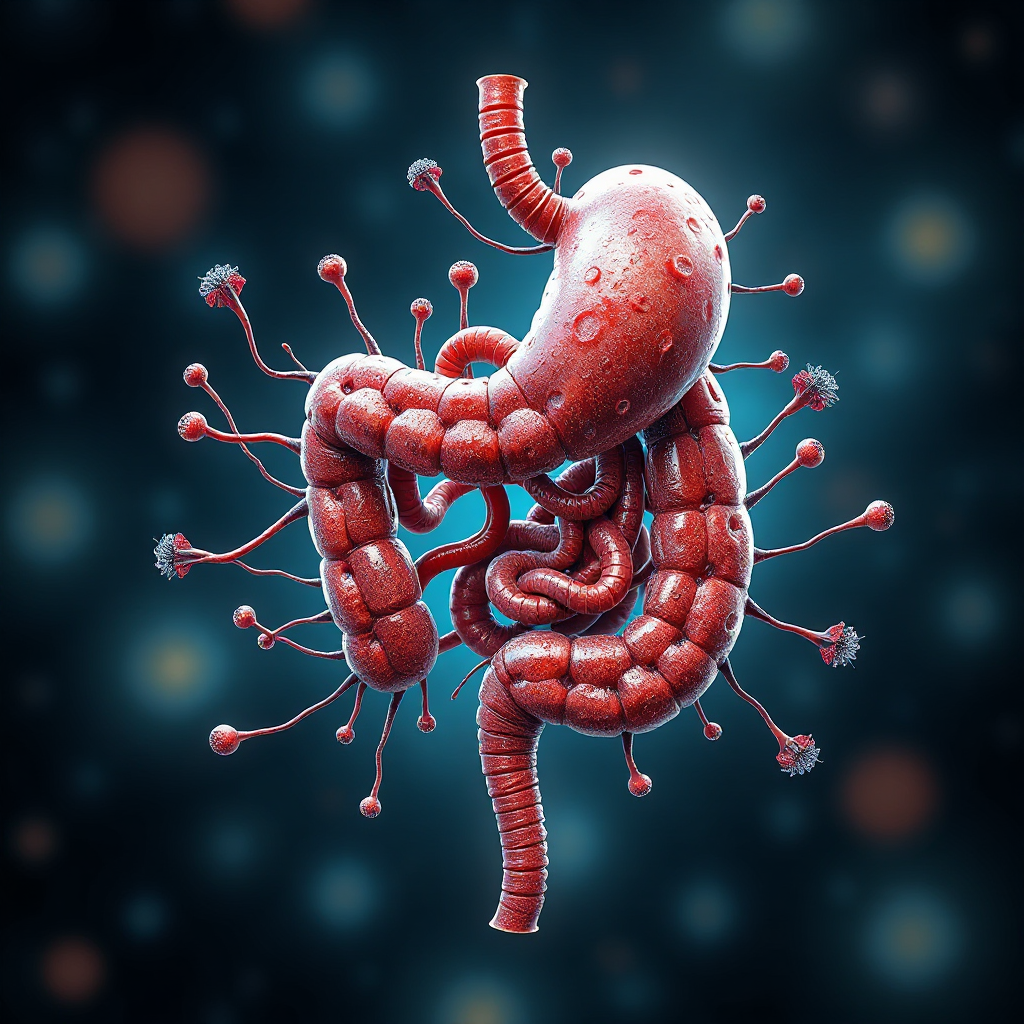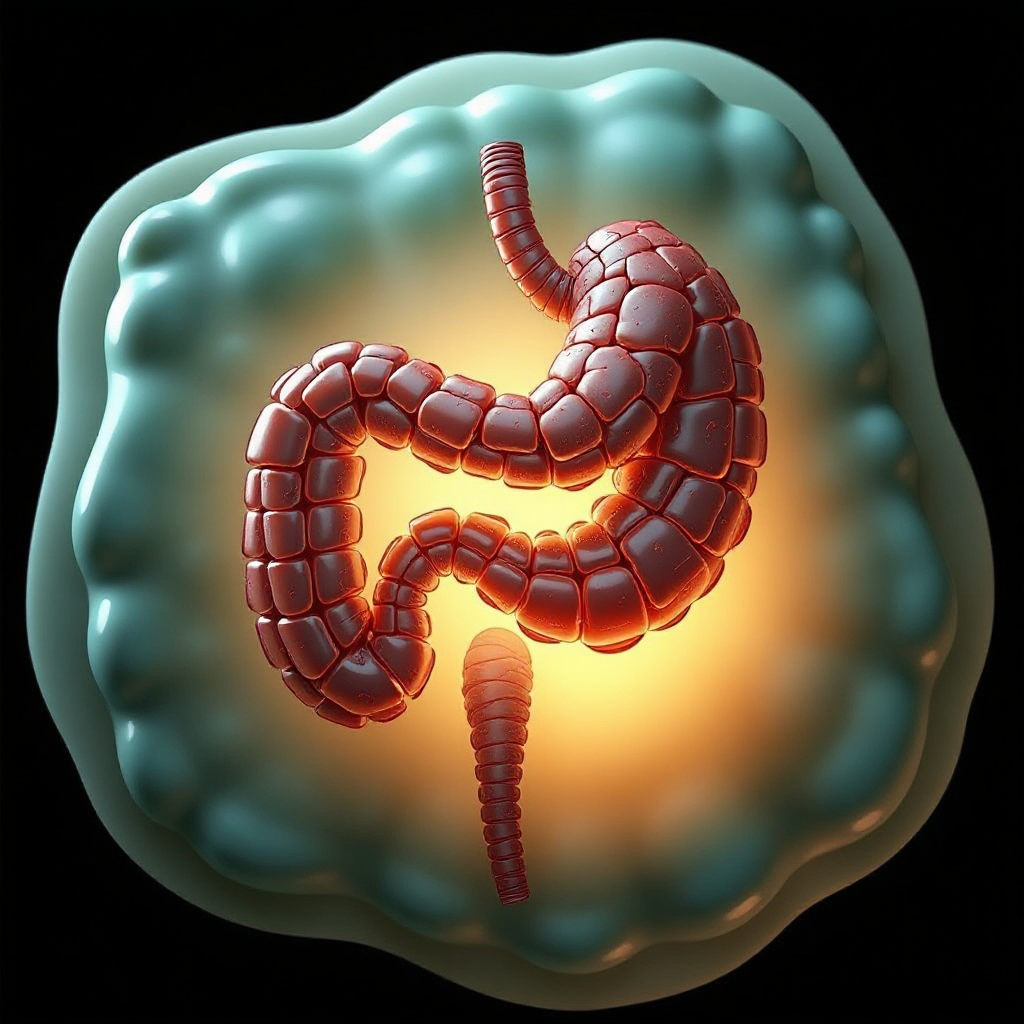Small Intestine Cancer-What Are the Symptoms

Small intestine cancer often begins with symptoms that may seem minor but can signal serious health concerns. You might notice persistent abdominal pain, unexplained weight loss, or fatigue. Some individuals experience nausea, vomiting, or dark-colored stools caused by internal bleeding. These symptoms can sometimes overlap with other conditions, making early diagnosis challenging. Since small intestine cancer is rare, it often takes months to identify due to vague signs that mimic more common illnesses. Recognizing these early warning signs can help you seek medical attention promptly.
Key Takeaways
Look out for stomach pain that won't go away. See a doctor if it continues.
Losing weight without trying could mean something serious. Talk to a doctor if this happens.
Feeling sick or throwing up for no clear reason might mean a blockage. Don't ignore it.
Seeing blood in your poop, even if it's dark, is a warning. Tell a doctor if you notice this.
Feeling very tired all the time, even after rest, could mean a problem. Finding it early helps.
Common Symptoms of Small Intestine Cancer

Abdominal Pain
Abdominal pain is one of the most common symptoms of small intestine cancer. You might feel a persistent ache or cramping sensation in your belly. This discomfort often worsens over time and may not go away with over-the-counter medications. The pain can sometimes be mistaken for indigestion or other gastrointestinal issues, which makes it easy to overlook. If you notice recurring pain in your abdomen that doesn’t improve, it’s important to consult a healthcare provider.
Unexplained Weight Loss
Losing weight without trying is another warning sign of small intestine cancer. You might notice your clothes fitting looser or a drop in your weight on the scale, even though your diet and activity levels haven’t changed. This symptom occurs because the cancer can interfere with your body’s ability to absorb nutrients properly.
Common causes of unexplained weight loss include:
Reduced appetite due to nausea or discomfort.
Malabsorption of essential nutrients.
If you experience sudden weight loss, it’s crucial to seek medical advice. While this symptom can result from other conditions, it’s better to rule out serious causes like small intestine cancer.
Nausea and Vomiting
Nausea and vomiting are frequent symptoms of small intestine cancer. You might feel queasy after eating or experience episodes of vomiting that seem unrelated to food poisoning or other common illnesses. These symptoms occur when the tumor blocks or partially obstructs the intestine, making it difficult for food to pass through.
Note: Symptoms like nausea, vomiting, and abdominal pain are often vague and can mimic other conditions. This overlap can delay diagnosis, so paying attention to persistent or worsening symptoms is essential.
If you notice these signs, don’t ignore them. Early detection of small intestine cancer can improve treatment outcomes.
Blood in Stool
Noticing blood in your stool can be alarming. This symptom often appears as dark or tarry stools, which indicate internal bleeding. In small intestine cancer, bleeding occurs when a tumor damages the intestinal lining. You may not always see bright red blood, as the bleeding often happens higher up in the digestive tract.
Tip: If you notice persistent changes in stool color or texture, consult a healthcare provider. These changes could signal a serious condition, including small intestine cancer.
Sometimes, blood loss from the stool is slow and goes unnoticed. Over time, this can lead to anemia, which causes fatigue and weakness. Doctors often use stool tests to detect hidden blood. If you experience this symptom, seeking medical advice promptly can help identify the cause and start treatment early.
Fatigue and Weakness
Feeling tired all the time or unusually weak might seem unrelated to cancer, but it can be a key symptom. Small intestine cancer can cause fatigue in several ways. First, the tumor may interfere with nutrient absorption, leaving your body without the energy it needs. Second, chronic blood loss from the tumor can lead to anemia, which reduces oxygen levels in your body.
You might notice that even simple tasks, like climbing stairs or carrying groceries, feel more difficult. This type of fatigue doesn’t improve with rest.
Common signs of cancer-related fatigue include:
Difficulty concentrating.
Feeling physically drained after minimal activity.
Lack of motivation to perform daily tasks.
If you experience persistent fatigue or weakness, don’t ignore it. These symptoms could point to an underlying issue, including small intestine cancer. Early detection can improve your chances of successful treatment.
Less Common Symptoms of Small Intestine Cancer
Jaundice
Jaundice is a less common but significant symptom of small intestine cancer. It causes your skin and the whites of your eyes to turn yellow. This happens when a tumor in the duodenum, the first part of the small intestine, blocks the bile duct. The blockage prevents bile from flowing from your liver into the intestine. As a result, bile builds up in your bloodstream, leading to jaundice. You might also notice dark urine, pale stools, or itchy skin. These signs should prompt you to seek medical attention immediately.
Changes in Bowel Habits
Small intestine cancer can cause noticeable changes in your bowel habits. You might experience diarrhea, constipation, or alternating patterns of both. These changes occur when a tumor disrupts the normal movement of food and waste through your digestive system. For example, a partial blockage in the intestine can slow down digestion, leading to constipation. On the other hand, malabsorption caused by the tumor can result in diarrhea. If you notice persistent changes in your bowel habits, it’s important to consult a healthcare provider.
Lump in the Abdomen
In some cases, you might feel a lump or mass in your abdomen. This lump forms when the tumor grows large enough to be felt through the abdominal wall. It may feel firm or tender to the touch. While this symptom is less common, it is a clear sign that something is wrong. A lump in the abdomen often indicates advanced stages of small intestine cancer. If you detect an unusual mass, don’t ignore it. Early evaluation can lead to better outcomes.
Symptom Type | Symptoms |
|---|---|
Common Symptoms | Abdominal pain, nausea, weight loss, fatigue, dark-colored stools, anemia, jaundice |
Less Common Symptoms | Perforation, jaundice due to bile duct obstruction |
Note: Less common symptoms like jaundice and abdominal lumps often appear in later stages. Recognizing them early can make a significant difference in treatment success.
Causes of Small Intestine Cancer
Genetic Mutations
Genetic mutations play a significant role in the development of small intestine cancer. These mutations can alter the way your cells grow and divide, leading to abnormal cell behavior. Some inherited genetic conditions, such as familial adenomatous polyposis (FAP) and Lynch syndrome, increase your risk. These conditions often cause the formation of polyps or tumors in the digestive tract, which can become cancerous over time. If you have a family history of these genetic disorders, it’s important to discuss screening options with your doctor.
Chronic Inflammation
Chronic inflammation in the small intestine can damage your cells and increase the likelihood of cancer. This happens because inflammation affects DNA and disrupts normal cell growth. Over time, these changes can lead to tumor formation. Conditions like Crohn’s disease are closely linked to this process.
Chronic inflammation contributes to cancer by:
Damaging DNA and altering cellular growth.
Triggering excessive cell reproduction, which can lead to uncontrollable growth.
Increasing the risk of mutations in the affected area.
If you have an inflammatory condition, managing it effectively can reduce your risk of small intestine cancer.
Diet and Lifestyle
Your diet and lifestyle choices also influence your risk of developing small intestine cancer. A high-fat diet and frequent consumption of red meat have been linked to this type of cancer. Additionally, eating salted or smoked foods may increase your risk. These foods can introduce harmful compounds into your digestive system, which may damage cells over time.
To lower your risk, consider adopting a balanced diet rich in fruits, vegetables, and whole grains. Making healthier lifestyle choices can help protect your digestive health and reduce the likelihood of small intestine cancer.
Other Medical Conditions
Certain medical conditions can increase your risk of developing small intestine cancer. These conditions often affect the digestive system or weaken your immune system, making it harder for your body to fight abnormal cell growth.
1. Crohn’s Disease
If you have Crohn’s disease, you may face a higher risk of small intestine cancer. This condition causes chronic inflammation in your digestive tract, which can damage the intestinal lining over time. The repeated cycle of inflammation and healing may lead to DNA changes in your cells, increasing the likelihood of cancer.
Tip: Managing Crohn’s disease with medication and regular check-ups can help reduce your risk. Speak with your doctor about ways to control inflammation effectively.
2. Celiac Disease
Celiac disease, an autoimmune disorder, can also raise your risk. When you consume gluten, your immune system attacks the lining of your small intestine. Over time, this damage can lead to complications, including an increased chance of developing cancer.
3. Immunodeficiency Disorders
Conditions that weaken your immune system, such as HIV/AIDS or organ transplant-related immunosuppression, can make you more vulnerable. A weakened immune system struggles to detect and destroy abnormal cells, allowing cancer to develop more easily.
4. Peutz-Jeghers Syndrome
This rare genetic condition causes polyps to form in your digestive tract. These polyps can sometimes become cancerous, increasing your risk of small intestine cancer.
Note: If you have any of these conditions, regular screenings and proactive management can help detect potential issues early. Early detection often leads to better outcomes.
By understanding how these medical conditions impact your risk, you can take steps to protect your health. Always consult your healthcare provider for personalized advice.
Risk Factors for Small Intestine Cancer

Age and Gender
Your age plays a significant role in the likelihood of developing small intestine cancer. The disease is more common in older individuals, with the median age at diagnosis being 66 years. As you age, the risk increases significantly, especially in your 60s and 70s. The table below highlights the percentage of new cases by age group:
Age Range | Percent of New Cases |
|---|---|
<20 | 0.1% |
20–34 | 1.8% |
35–44 | 5.3% |
45–54 | 13.5% |
55–64 | 24.1% |
65–74 | 29.7% |
75–84 | 19.2% |
>84 | 6.3% |
Gender also influences your risk. Small intestine cancer occurs slightly more often in men than in women. While the difference is not drastic, it suggests that men may need to be more vigilant about monitoring symptoms and risk factors.
Family History
Your family history can significantly impact your risk of small intestine cancer. If close relatives have had this type of cancer or related conditions, your chances of developing it increase. Inherited genetic syndromes, such as Lynch syndrome or familial adenomatous polyposis (FAP), are particularly concerning. These conditions often lead to abnormal cell growth in the digestive tract, which can progress to cancer. If you have a family history of these syndromes, regular screenings and genetic counseling can help you manage your risk effectively.
Tip: Knowing your family’s medical history can help you and your doctor create a personalized prevention or screening plan.
Exposure to Carcinogens
Certain carcinogens can increase your risk of small intestine cancer. Chronic inflammation in the small intestine, often caused by conditions like Crohn’s disease, ulcerative colitis, or celiac disease, can lead to DNA damage and excessive cell reproduction. Lifestyle factors also play a role. Smoking and alcohol consumption are associated with a higher risk of cancer. Additionally, diets high in red meat and salted or smoked foods may introduce harmful compounds into your digestive system, further raising your risk.
Common carcinogens linked to small intestine cancer include:
Chronic inflammation from digestive disorders.
Smoking and alcohol use.
Diets rich in red meat or processed foods.
By addressing these risk factors, you can take proactive steps to protect your health. Making healthier lifestyle choices and managing chronic conditions can significantly reduce your chances of developing small intestine cancer.
Recognizing the symptoms of small intestine cancer early can significantly improve your chances of successful treatment. Early diagnosis often leads to better survival rates, as shown below:
SEER Stage | 5-Year Relative Survival Rate |
|---|---|
Localized | 84% |
Regional | 78% |
Distant | 42% |
All stages | 69% |
If you notice concerning symptoms, consult a healthcare professional promptly. While there is no guaranteed way to prevent this cancer, you can take steps to lower your risk:
Limit red meat and smoked or salted foods in your diet.
Maintain a healthy lifestyle and monitor your health history.
Understanding these factors empowers you to take preventive measures and seek timely care.
FAQ
What are the early warning signs of small intestine cancer?
Early signs include abdominal pain, unexplained weight loss, and fatigue. You might also notice nausea, vomiting, or changes in stool color. These symptoms often mimic other conditions, so paying attention to persistent or worsening signs is crucial.
How is small intestine cancer diagnosed?
Doctors use imaging tests like CT scans, endoscopy, or biopsy to confirm a diagnosis. Blood tests may also help detect anemia or other abnormalities. If you experience symptoms, your doctor will recommend the most appropriate diagnostic method.
Can small intestine cancer be prevented?
While you cannot completely prevent it, you can lower your risk. Eat a balanced diet, avoid smoking, and limit alcohol consumption. Managing chronic conditions like Crohn’s disease or celiac disease also helps reduce your chances of developing this cancer.
Is small intestine cancer treatable?
Yes, treatment options include surgery, chemotherapy, and radiation therapy. The success of treatment depends on the stage of the cancer at diagnosis. Early detection improves outcomes significantly, so consulting a doctor promptly is essential.
Who is at higher risk of small intestine cancer?
Older adults, especially those over 60, face a higher risk. Men are slightly more likely to develop it than women. A family history of cancer or genetic conditions like Lynch syndrome also increases your risk.
Tip: Regular screenings and a healthy lifestyle can help you manage your risk effectively.
See Also
Identifying Symptoms Associated With Appendix Cancer
Recognizing Key Symptoms of Kidney Cancer
Common Symptoms and Triggers of Gastric Cancer

